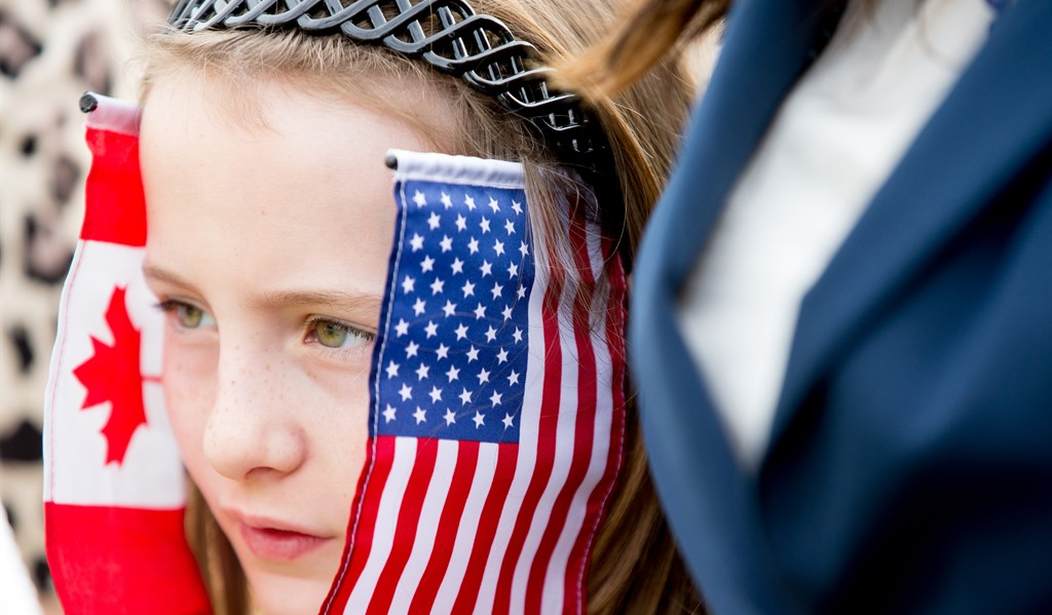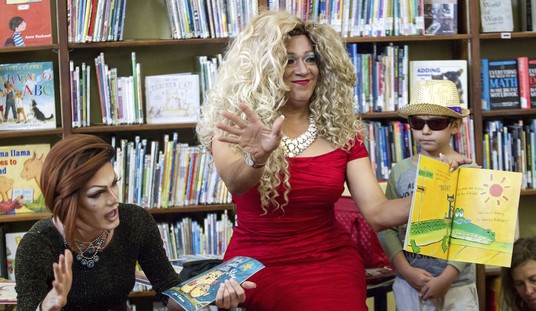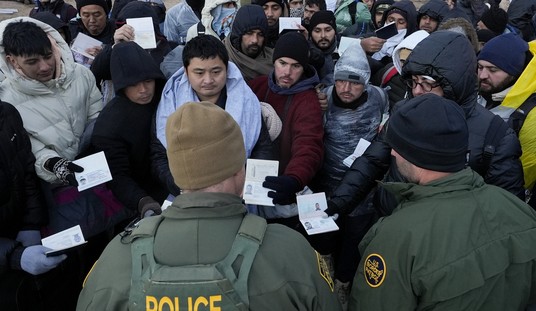A funny thing happened along the way as Canadians decided to start a boycott against American-made groceries. It turns out that so many Canadian food products are made in America that consumers don’t even realize how much is actually coming from their neighbors to the south.
A perceived one-two punch to Canadians delivered from the Trump administration has the “Canada-nice” reputation in jeopardy. The usually easy-going Canadians are downright angry about the tariffs levied on Canadian steel and other products. Then, adding insult to injury, President Trump mocked Canadian Prime Minister Justin Trudeau as “very dishonest and weak” at the G-7 summit in his own country.
A hashtag-worthy movement began as Canadians began calling for consumers to #BuyCanadian, #BoycottUSProducts, and #BoycottUSA. There is a catch, though. Up to 60% of the food on Canadian grocery store shelves is from America. Average Canadian consumers don’t know what products are and are not made in Canada. Not so easy, eh?
The country is the U.S.’s top export market, taking a little more than 18% of all U.S. goods that are sold abroad. Sylvain Charlebois, a professor in food distribution and policy at Dalhousie University in Nova Scotia, estimates roughly 40% to 60% of food on Canada’s grocery shelves is from the U.S. Closely linked production chains make it tough to determine how much of any given item was produced domestically.
That has left would-be boycotters scratching their heads as they untangle how much of a given product was made or grown outside the country.
Even when a food product is technically produced in Canada, the actual food comes from America. For example, sweet potatoes aren’t grown in Canada’s climate so the source of frozen sweet potato fries is America.
Susan Quinn-Mullins, a semiretired communications professional from Burlington, Ontario, said she turned to the frozen-food section of her local grocery store when she couldn’t find Canadian-grown sweet potatoes. Canadian food giant McCain Foods Ltd. makes sweet-potato fries, but the package said the potatoes were grown in the U.S., Ms. Quinn-Mullins said.
“I’m now becoming slightly radical about this,” said Ms. Quinn-Mullins, who skipped the fries and is still on the hunt for Canadian sweet potatoes.
A spokeswoman for McCain said its sweet potatoes are sourced from the U.S., where the climate is better for growing them.
Interesting development there. So far, the boycott efforts aren’t proving very fruitful. The movement is young but the sheer amount of goods exported from America is daunting.
It is difficult to say whether the nascent boycott efforts are having an impact. Goods exports to Canada were up nearly 4% in June from the same month last year, according to the U.S. Census Bureau. However, they were down 1.2% when compared with the previous month on a seasonally adjusted basis.
Some companies have wised up and jumped on the bandwagon to promote Canadian products by displaying the Canadian flag on labels. This is a sound marketing decision. I know that when I lived in south Louisiana, a push for locals to buy authentic Cajun products spurred companies to label their products as such on labels. For me, it helps when I shop for frozen crawfish, for example. Chinese crawfish importers can have very deceptive labeling. I buy crawfish from the Gulf of Mexico, not China.
Did you know? As a 100% Canadian owned and operated company, we recently began printing a Canadian flag on all new product packaging. #BuyCanadian #icecream #CanadianProud pic.twitter.com/k47OIeLJs3
— Chapman's Ice Cream (@Chapmans_Canada) August 1, 2018
So, what about the idea of boycotting travel to America for vacation? That idea isn’t showing as much support or enthusiasm.
One sector where the boycott efforts doesn’t seem to be working is travel. Overall cross-border car trips by Canadians were up 12.7% in June from the same month last year, according to Statistics Canada.
Canadians like to virtue-signal and illegal immigration is one of their favorite issues to drag the Trump over. Nevermind that even Justin Trudeau has now admitted that unlimited access to Canada via an open border approach on his side of the border isn’t such a great idea. Resources are being stretched thin.
Most of the migrants entering Canada from America are exploiting a loophole in the Safe Third Country Agreement. The Safe Third Country Agreement spells out that asylum seekers must make their claim in the country in which they first arrived. But that only applies when claims are made at official border ports of entry. If, however, asylum seekers reach Canadian territory by avoiding ports of entry, they become entitled to stay while their claims are processed. That is because of Canada’s Charter of Rights and Freedoms and because Canada is a signatory of the U.N. Refugee Convention. In this way, claimants knowingly avoid return to the U.S. and are placing a strain on Canadian federal, provincial and municipal resources.
In the absence of a mitigating policy, illegal migrants crossing the U.S.-Canada border will increasingly consume resources previously meant to help process overseas immigrants. Canadian citizens who seek to bring their family members into the country will be delayed. Employers who seek to bring over skilled workers will not be able to do so. Investors who want to come to Canada to start businesses and grow the Canadian economy will be pushed aside.
It turns out that when Canadians are planning some vacation travel to America, the decision becomes a bit murkier than in the past. With good deals to be had for summer travel, for example, family trips aren’t being sacrificed in the name of sticking it to President Trump.
Despite all the boycott talk, the number of Canadians returning from overnight trips in the U.S. has actually grown by six per cent, on a seasonally adjusted basis, since Trump’s inauguration.
Western Canadians, in particular, are flocking across the border in larger and larger numbers, with double-digit increases recorded in B.C., Alberta and Saskatchewan over that same time.
The individual pocketbook always wins in the end. Who is going to pass up a quick trip over the border for a baseball game or an easy weekend trip at a good price just to make a statement over an American policy that won’t be affected anyway? Canadians are practical in their outrage.
Time will tell how effective the boycotting of American good turns out. In the meantime, I’ll leave you with a list of goods affected by Canadian tariffs launched in a tit-for-tat retaliation.







Join the conversation as a VIP Member